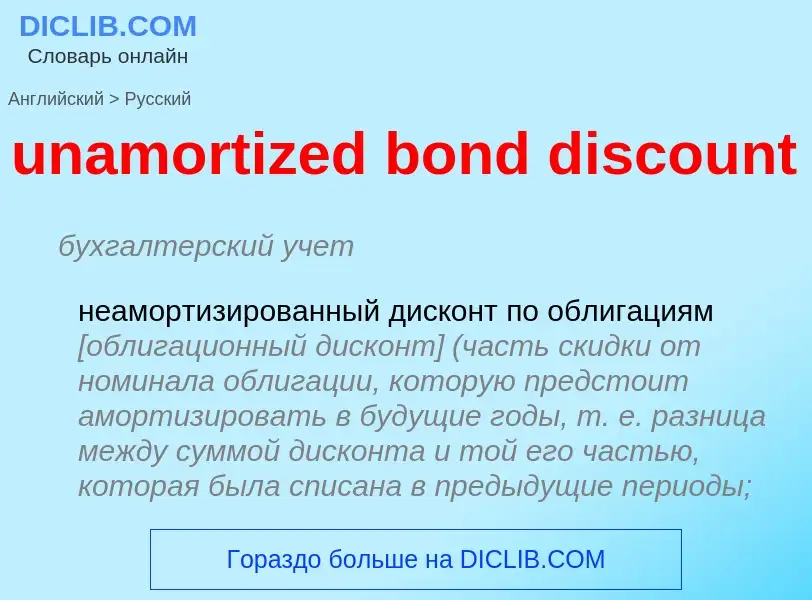unamortized bond discount - translation to Αγγλικά
бухгалтерский учет
неамортизированный дисконт по облигациям [облигационный дисконт] (часть скидки от номинала облигации, которую предстоит амортизировать в будущие годы, т. е. разница между суммой дисконта и той его частью, которая была списана в предыдущие периоды; учитывается на отдельном счете, который является регулирующим счетом к счету непогашенных облигационных обязательств)
антоним
Смотрите также
Ορισμός
Βικιπαίδεια

A zero coupon bond (also discount bond or deep discount bond) is a bond in which the face value is repaid at the time of maturity. Unlike regular bonds, it does not make periodic interest payments or have so-called coupons, hence the term zero-coupon bond. When the bond reaches maturity, its investor receives its par (or face) value. Examples of zero-coupon bonds include US Treasury bills, US savings bonds, long-term zero-coupon bonds, and any type of coupon bond that has been stripped of its coupons. Zero coupon and deep discount bonds are terms that are used interchangeably.
In contrast, an investor who has a regular bond receives income from coupon payments, which are made semi-annually or annually. The investor also receives the principal or face value of the investment when the bond matures.
Some zero coupon bonds are inflation indexed, and the amount of money that will be paid to the bond holder is calculated to have a set amount of purchasing power, rather than a set amount of money, but most zero coupon bonds pay a set amount of money known as the face value of the bond.
Zero coupon bonds may be long or short-term investments. Long-term zero coupon maturity dates typically start at ten to fifteen years. The bonds can be held until maturity or sold on secondary bond markets. Short-term zero coupon bonds generally have maturities of less than one year and are called bills. The US Treasury bill market is the most active and liquid debt market in the world.


.jpg?width=200)